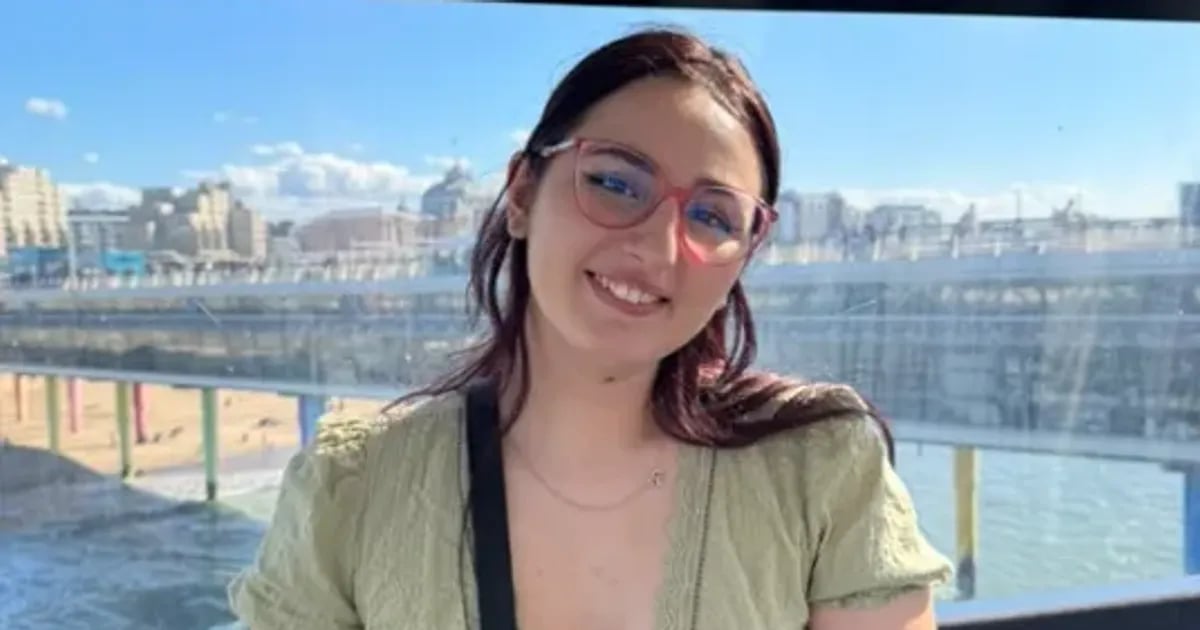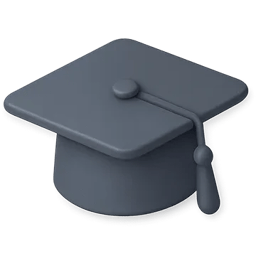Background
Hi, my name is Zena, I’m 19 years old, and I’m from Oradea, Romania. During high school, I honestly got involved in every volunteering opportunity I could find, such as being vice president of the Bihor County Student Council and a member of about ten NGOs throughout high school. Right now, I’m studying in my first year at the University of Amsterdam, Netherlands. My Bachelor is Communication Science and this is my story!

How Volunteering Shaped Me
I currently work as a social media manager and event manager at Vreau să studiez în Europa, an NGO that helps students study abroad. I also did photography for quite some time, and in my last year and a half of high school, it even became a part-time job. I photographed many events as a volunteer and later worked as a freelance photographer.
Besides that, I did graphic design for the National Student Council, where I was a designer, and for nearly every project I joined, since I always gravitated toward the social media side of things. I also collaborated with a marketing agency during my senior year and took on a few smaller branding projects with other agencies.

All this to say: I’m passionate about photography, volunteering, and graphic design! I also deeply love music; I played the piano for ten years. When I stopped, I searched for a new artistic outlet and discovered concert photography. That’s something I truly hope to continue as a career, because I just love it so much.
I did event photography, mostly for 18th birthday parties. It wasn’t constant work, but it paid well for the effort. I started in January and worked until July, covering 11 parties in total. I also shot photos for local restaurants and freshmen’s balls. If I wasn’t invited to take photos, I’d just ask to join because I wanted to meet people and improve my skills.
I’ve been doing photography for just over a year, but I got serious once I upgraded my camera. Since then, I’ve really gotten into it, and I love it!
About My 12th Grade Part Time Job
High School
During high school, I chose a vocational program instead of a theoretical one. Basically, vocational programs in Romania include pedagogy, arts, theology, and sports. I chose the theological track because I really wanted to stay in the school I’ve been studying; I’d been there since kindergarten. Overall it’s a good high school and and I already knew all the teachers and the community. I didn’t want to leave my comfort zone.
Definitely more. It was never casual for me. Some of my best memories come from extracurriculars. I met most of my closest friends through the Student Council. It was a place where I found myself and learned how to be more sociable. I’d always been friendly, even in middle school, but I didn’t have many friends back then. In high school, I made many — and through all these activities, I even brought some of my outside friends into volunteering. It was fun, but also deeply meaningful — it helped me grow both personally and professionally. Most of the defining moments in my life come from those activities.
Interviewer: Do you think getting involved in extracurriculars can become something more profound than just an activity?
How Does It Feel Behind the Camera?
It feels like being part of an event while also standing outside of it. It’s hard to explain. For me, at a concert, I’d rather take photos than just watch; I actually enjoy it more that way. I know I’m capturing something I love, freezing a moment that would otherwise fade. That feeling is amazing.
There’s also something special about maybe being reposted by an artist or having that bit of interaction. You start to connect with the songs differently when you’re photographing them. I love that. And I’ve met so many people through photography; while waiting for things to happen, you talk to other photographers, exchange tips, and learn so much just by chatting backstage. It’s a really nice, warm atmosphere.

Why I Chose To Study Abroad
It was always a dream of mine to study abroad. Ever since middle school, I wanted to leave the country, explore the world, travel, and see new perspectives. I sought teachers who genuinely loved their job and a community in which I would thrive, and so after deciding that the UK was too expensive, the Netherlands became my first option.
I chose this country because the communication program here is one of the best. And I’d be lying if I said I didn’t care about rankings; I do, because they matter later on. It’s a top university, and I knew the education would be excellent.

But the financial aspect also played a big role. Studying here is very affordable compared to other countries: tuition is around €2,600 per year. My rent is €700, but I get about €300 back monthly from the government, including utilities. So, basically, it’s like renting a slightly more expensive apartment in Bucharest.
Besides that, Amsterdam is a communication hub - there are so many events, festivals, and concerts. It’s such a cultural city! I was amazed seeing how many artists perform here. Every weekend, there’s something going on. And since I want to work in concert or festival communication, being here is the perfect opportunity.

I think it depends. From what I’ve seen, some people choose not to leave mostly for financial reasons, and that’s completely valid. Others just want to remain in their comfort zone, and I don’t think that's necessarily bad either.
Yes, starting completely over is hard. You give up everything familiar, and sometimes I wonder what would’ve happened if I had stayed and taken advantage of some of the opportunities I know I missed. I’ve had moments when I knew that, had I been in Oradea, I would’ve had great chances and experiences that I can’t have here. Sometimes, it’s difficult to accept that. For me, I can’t say I completely feel that I belong here yet. The environment is very intercultural, which I love, but I’m still figuring things out. It’s a long process, one I’ve committed to, and I’m not giving up on it, as I feel like my journey has just begun.
Interviewer: When do you think someone should take the risk of studying abroad instead of staying in their own country?
The Dutch Application Process
Honestly, if you start researching early, it’s pretty simple. Yes, it takes time, but you only need a CV, your high school transcript, a document stating what subjects you’ll take at the baccalaureate, and an English certificate. I had a Cambridge C2 (B2 is enough), and I also included a document predicting my Baccalaureate grades, though I’m not sure it was mandatory.
How I Almost Wasn’t Accepted Because of My High School Diploma
After I submitted everything, I received an email saying I was conditionally accepted. The message mentioned that I would need to send my baccalaureate diploma from a theoretical track. But all my documents clearly showed that my diploma would be from a vocational track. Before applying, one of my friends had even called the Central Student Desk here and asked whether a theology background (which is vocational) would be accepted, and they approved. Then, after my conditional acceptance, Admissions suddenly told me I couldn’t enroll because my diploma wasn’t theoretical. I ended up finding and translating an official order from the Romanian Ministry of Education that stated the national baccalaureate exam is identical for both theoretical and vocational tracks. I also asked my high school to issue an additional certificate confirming that I was taking the exact same Baccalaureate subjects and that the diploma was equivalent in level. After resending everything, they finally admitted I was right and confirmed my place.

Extra Tests, Timing and Final Admission Details
They sent us university-level materials (around 80 pages of readings and two lectures), and at the end, we took two exams based on those. The subjects were the same ones I study now: Introduction to Communication Science and Statistics. You could get one of four grades: insufficient, sufficient, good, or excellent.
The whole idea of the matching procedure was to help you understand if the program actually suits you. You could even register for other matching sessions from different majors, just to see what fit you better.
As for timing, the platform Studielink opened on October 1st. I applied right away, in early October. They move pretty fast with responses, but because of my document issue, I got my final answer only around November. After that, there were a few quiet months, and then they emailed us to register for one of the matching sessions, and I did mine in March.
After finishing, you just upload your financial details and, later, your baccalaureate diploma and final grades. That’s when your enrollment becomes official. Honestly, it’s a very simple process, much simpler than I expected. Grades do matter, especially your average and baccalaureate score, but they aren’t that strict. For example, I helped a friend apply to Business with an 8.50/10 GPA, and he still got in. So as long as you meet the English and math requirements, you’re good.
I chose this degree because communication has always fascinated me; I wanted to do something broader, something that doesn’t box me into a single niche. Graphic design is great, but it’s specific — you do just that. Communication, on the other hand, lets you explore everything: political communication (which I can’t wait to study), entertainment communication, health communication, even bits of journalism. It’s a degree that gives you a wider perspective and more career options. You don’t have to decide right away what you want to do for the rest of your life. That’s what I liked — and that’s why I chose it.
Why I Chose this Degree
And My Timetable Looks Like This…
This semester I have three courses. One of them is “Skills Bootcamp,” which is more about how to write correctly, cite scientific papers, approach different international perspectives when writing, and so on. We only have it once every five weeks, and it continues throughout the whole year.
The other two are regular courses with weekly lectures and four seminars per week. Altogether, I have around 14–15 hours of classes weekly. But most of the work is individual, meaning you have to build your own foundation and go deeper into what you learn. For every lecture, you come prepared with readings and notes already done. In class, you approach everything from another perspective, discuss examples, and clarify things, so it’s a little opposite of what you’d normally do in high school (discuss in class, learn at home). I really enjoy this approach much more because the discussions are touching upon different sides of the theory and it’s basically a feedback to how well you understood the concept based on how you interact during class.

Tutorials are very team-based. The professor’s there mostly to help if you get stuck, but you actually work through problems together with your classmates. We collaborate a lot, which makes you learn both the content and teamwork.
I use lists for everything, absolutely everything! I make daily task lists and set clear goals. I usually plan more than I can realistically do, leaving a margin of error in case something takes longer. When I start working, I know I’ll get absorbed in it and really push through. I also try to prioritize hard or boring tasks if I know it’ll take longer. To study I use Pomodoro, which helps me keep focused, although the breaks may sometimes stretch longer than 5 minutes…Honestly, everyone needs to find their own way of studying. In high school, I experimented with almost every method possible, just to make university easier.
How Do I Manage My Time?
First Month as an International Student
You don’t actually do that much on campus, but you have tons to do at home. For example, a single statistics assignment can take me several hours to figure out, while for the other subject, I have to read, annotate, and memorise around forty pages a week. That means you really have to discipline yourself: make time to study, and not fall behind, which I’m still working on!
Meeting new people has also been a challenge, not hard, just something that takes time. I’ve already made a few friends, but I still want to meet more people. I’ve gone out in the city as often as I could, explored new places, walked around a lot, and even went to a few interviews for volunteer positions. I’ve been trying to step out of my comfort zone and do a bit of everything while keeping a healthy work–study–life balance.

Another thing I’m getting used to is speaking up more in class. Everything here is very team-based and discussion-heavy, so I’m learning to be more active and confident when I talk.
The international community, though, is amazing. Most have studied in many places and explored multiple cultures. They’re very open and present. It makes it a little easier to make friends, and I consider myself lucky that I integrated well and met people I can spend time with.

Fortunately, UvA organises an Introduction Week for freshmen, called Intreeweek! It’s so worth it, we did many activities: a boat tour through the city, Museum Night where you could visit dozens of museums for free until midnight, and Museum Morning for other free visits, many parties, a festival outdoors and a treasure hunt in a beautiful neighbourhood of Amsterdam.
We were lucky to have an amazing mentor who got so involved with us. She took us out with friends in the city, introduced us to people, and created an incredible list of things to see and do (cafés, stadiums, activities), everything to help us explore and connect. I’d always encourage any freshman to say yes to community activities as you get to know so many cool people and by the end of it, you’ll see life differently abroad.
About The Introduction Week
Tuition & Casual Expenses
The tuition for EU students is around €2,600/year. EU students can’t really get scholarships, but if you work part-time, even just 32 hours a month, you can receive a government grant between €300 and €500 monthly. If your parents’ income is under a certain threshold, you can also apply for a low-interest student loan from the Dutch government. I’d say that €1,400/month is an average sum students pay here to live.
My apartment is university-provided. At UvA and other universities in Amsterdam, you can apply for student housing online, but it’s a bit hidden on their sites. Most people look for other options, but I just applied through the official channel and got it. It works like a lottery: you fill in a form with your budget and preferences, like whether you want to share common areas with someone, have a private bathroom with a friend, live alone, or live alone in a fancier, more expensive apartment. Then you wait for the lottery results.
Public transport is very well developed, but also extremely expensive, around €80–90 per month for public transport. Usually, I just bike everywhere.

Word of Advice… Speak Up!
Try to be as open as possible. Don’t just stay in a cycle of studying at the university, going back home, and studying again. Push yourself to leave your comfort zone, even if it’s hard and sometimes intimidating. Everyone is there to make friends, and people are more open at the start of the year. If you go out, you can meet hundreds of people and eventually find your group. For me, in the first weeks, I went out with so many people during Introduction Week, met lots of new faces, and eventually found my close friends. You just have to put yourself out there, and at some point, you’ll find your people.
Being far from home. Everything is new, and you have to handle so much on your own - paying bills, managing daily life, dealing with things no one else helps you with. None of these tasks are particularly difficult individually, but they accumulate and take up mental space.
At home, I could have focused just on learning because other support was available. Here, you have to balance everything: your studies, social life, chores, and missing home. All of these together can be overwhelming at times, but to pass through, you just handle things step by step. Despite that, the international community and being in a culturally rich environment make it worthwhile. I feel like I’m learning not just academically but also personally: how to navigate life on my own while building friendships across cultures.
Interviewer: What’s been the most difficult part of studying abroad?





